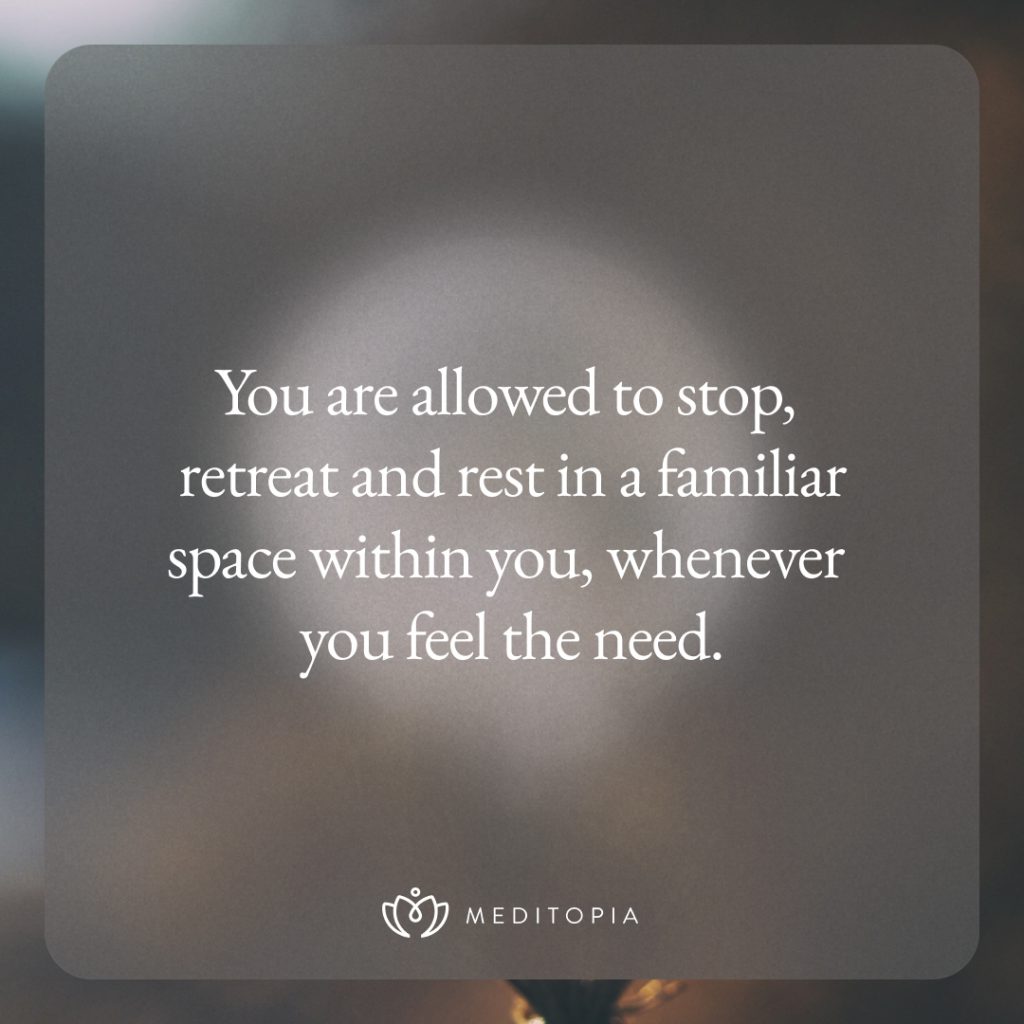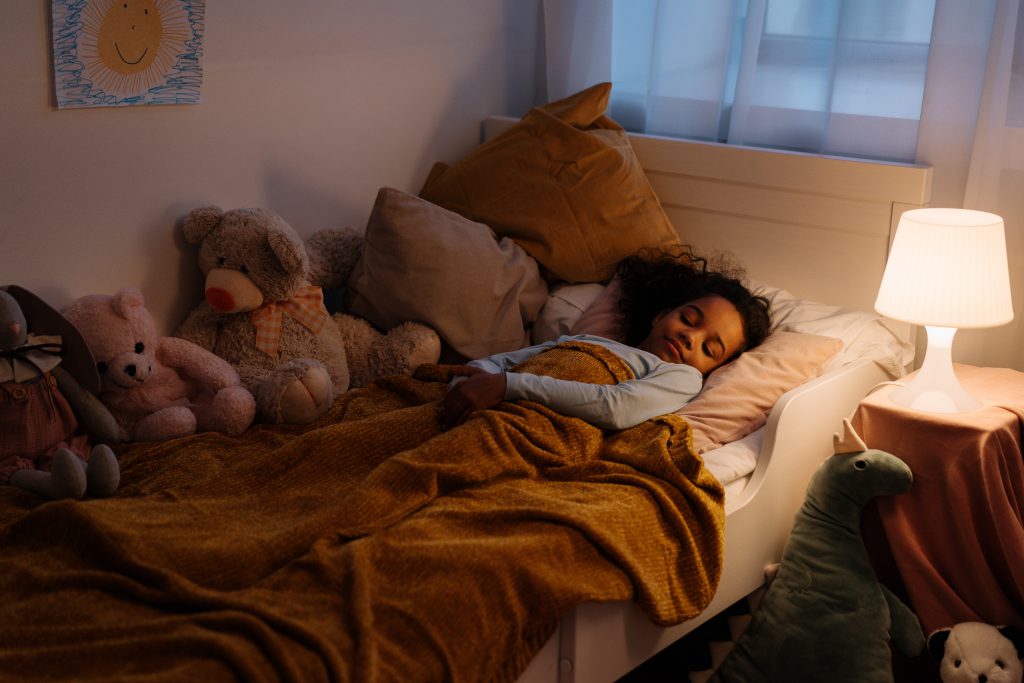Sleep & Our Psychological Well-Being

Content
Sleep as an Essential Need
From the moment we open our eyes to the world, sleep is one of our most fundamental needs. It’s an indispensable vital activity for our survival and growth. However, it’s not only essential for our biological, physiological, and mental development but also for our psychological and emotional development.
What is the Function of Sleep in Our Lives?
Sleep is the process of recovery in which we give ourselves time to replenish our bodies and regain our energy. A healthy sleep prepares our body and mind for the next day so that we can start our mornings free of exhaustion and full of health and happiness.
Sleep is the state of letting go and is therefore closely related to feeling safe and peaceful. If you feel safe and secure, it’s often much easier to close your eyes and fall asleep.
Interestingly, sleep is both an active and passive process in the flow of our daily lives. How so? On the one hand, sleep is a state of pause, of waiting and resting. It’s a time when we let ourselves go and get away from the activity of the day for a while. On the other hand, it is within that time that we also digest, sort, and organize the many things we experience and encounter during the day.

The Relationship Between Sleep & Psychology
Sleep can also reflect a person’s psychological state, which is why it’s important to pay attention to what our sleep patterns are telling us. If our psychological well-being is improved, if we feel good, we may notice that our sleep patterns are more balanced. For example, in an article reviewing various studies, it was observed that people experiencing positive emotions such as happiness, excitement, pleasure, and peace got better sleep. Additionally, improved sleep quality was also found to help those people maintain their psychologically positive state.
Sleep and psychology are multifaceted concepts that are interrelated. For a long time, it was thought that only psychological problems caused sleep problems. However, studies conducted in recent years have more clearly explained how sleep and psychology impact each other. Just as our psychological state affects our sleep pattern, our sleep pattern affects our psychology as well. Therefore, it also stands to reason that sleep problems can also cause some psychological problems to occur or increase in their severity.
The state of our psychological well-being is associated with sleep duration and sleep quality. Deep sleep (REM) facilitates our brain in processing and digesting affective information. However, as a result of sleep disorder and deterioration, the information fails to be processed and one can experience difficulty in regulating one’s emotions. This can prevent us from feeling calm and peaceful by shaping our mood and therefore our emotional reactions.
Yet another study with children revealed how important sleep is in enabling emotion regulation. It stated that children who sleep less experience more challenging emotions in their daily life and have difficulty with emotion regulation, while those who get enough sleep feel happier.
In general, quality and adequate sleep helps us to have enhanced psychological well-being, increasing the pleasure and satisfaction we get from life. During sleep, the body and brain repair themselves, which also facilitates psychological recovery. Sleep allows the systems that help to enable emotional regulation to activate and wake up.

Sleep Disruption
So, how do our sleep patterns get disrupted and what are sleep disorders?
Problems observed in the duration, quality, and timing of sleep are called sleep disorders.
Some of us may have trouble sleeping, some waking up, and some of us staying awake during the daytime. While some may fall asleep, they may wake up quite often throughout the night. They may experience restless and inadequate sleep or having nightmares every night. Some of us may feel very sleepy and tired during the day. These are just some sleep problems, examples and definitions can of course go on and on. However, the point that we need to direct our attention to is this: Although the sleep problems experienced vary from person to person, each of them involves a decrease in sleep quality and/or deterioration of sleep time balance. These difficulties related to sleep can cause disruptions in our daily lives, energy loss, and sometimes even contribute to a state of depression.

Causes & Consequences of Sleep Disruption
With disturbed sleep patterns, physiological problems such as aches, difficulty breathing, light and sound sensitivity can arise. Additionally, environmental factors like an uncomfortable bed or frequent consumption of caffeine, and a heavy workload can contribute to feelings of stress and anxiety.
Almost all psychological difficulties are accompanied by sleep-related problems, especially psychological difficulties such as chronic stress, anxiety, and depression. Some of us may not be able to sleep due to worrying about numerous thoughts bouncing around in our minds all at the same time. Some of us, on the other hand, may experience sleeping too much or being unable to fall asleep at night and we’ll spend long hours during the day sleeping, which can sometimes be related to experiences of depression. Nightmares or persistent challenging thoughts can make it difficult to fall asleep and reduce the quality of sleep as well. And still some of us can go without sleep for very long hours due to excessively high energy.
However, the relationship between sleep and psychology is not unilateral. Insufficient or poor sleep quality can cause various problems in how we function throughout our day. Lack of concentration, loss of tolerance, anger, and depression are just some of the things that can arise. Just as the deterioration in our psychological well-being disrupts our sleep patterns, issues with sleep can lead to the development of some psychological disorders or increase the possibility that we may experience them. In particular, brain-scanning studies have shown that a good night’s sleep not only has a positive impact on our psychology but also helps us to be emotionally resilient. On the other hand, issues with sleep can cause negative thoughts to form, thereby deteriorating our psychological well-being.
Sleep disorders can exacerbate psychological disorders, cause psychological distress, or be a symptom of psychological problems.
Seasonal Sleep Disorders
Although some of us do not have sleep problems in our daily lives, we may see a disturbance in our sleep patterns from time to time. It’s important to check in with yourself to determine which situations and emotions impact your sleep.
Many of us may find it difficult to fall asleep or sleep too much when we feel stressed, restless, or unhappy. Before an extremely important presentation or exam, we may try to distract ourselves from that stress by sleeping for long hours, or we may not even be able to sleep due to thinking about the exam and what will happen. However, neither of these situations will help us feel any better.
Unsolved problems, uncertain situations, and unsettling events can also cause us to overthink, crowding our mind with too many thoughts. Perhaps the things that we’ve postponed and forgotten to think about in the pace of daily life begin to appear in our minds as soon as our heads hit the pillow. It can be quite difficult to stop the flow of these thoughts, especially when you’re stressed or anxious, which can make it harder to fall asleep.
Seasonally, when our emotional and psychological balance is disturbed, the balance of our sleep may also be disturbed.
Another condition that affects sleep patterns can be a change in our sleeping environment beyond just your bed and pillows. Here, we’re talking about the effects of sleeping in an unfamiliar place. For some of us, sleeping in an unfamiliar place can be pretty tough, especially when we think of sleep as a state of being able to feel safe and let go. Feeling safe while sleeping in an unfamiliar place can be challenging for some of us and we may have difficulty falling asleep or find ourselves waking up frequently throughout the night with an instinct of self-protection.
How Can We Cope With Sleep Problems?
We’ve mentioned the benefits of sufficient and quality sleep and the mental, physical, and psychological difficulties caused by sleep disorders. So, how can we improve the quality and duration of our sleep?
First of all, we can try to increase the efficiency of our sleep with the concept called “sleep hygiene”. We can start by adjusting the physical conditions of the room we sleep in, making it ready for sleep. It’s critical that the room isn’t too hot or too cold, and it should be ventilated during the day, dim and quiet. Using our bed only for our sleep and sex life can be helpful. It can sometimes be more effective to get out of bed instead of forcing ourselves if we can’t sleep. We can get up and take a warm shower or have a hot cup of tea to try and relax before going back to bed. Additionally, avoiding caffeine after a certain time can help to ensure that we’re ready for sleep at night. Regular walking and exercising can also be effective in allowing us to fall asleep more easily. However, exercising just before sleep can make it harder to fall asleep. All of these habits can help regulate our sleep and increase our sleep efficiency.
As we’ve mentioned, the disruption of sleep patterns may be caused by the psychological state of the individual. In order to better assess our own relationship with sleep, we can take time for ourselves during the day and focus on getting to know ourselves. We can try to relax by increasing our awareness of stress-inducing situations, engage in activities that bring us joy, and spend time with people who make us happy in order to make room for some psychological relief. By doing so, we can also begin to regulate our sleep. The answers we discover on this path toward self-discovery can come in handy in balancing our sleep patterns.
Sometimes, a person who’s feeling low and experiencing disturbances in their sleep patterns may try to regulate their sleep in order to enhance their psychological wellness. As our sleep falls into place, our physiological and mental health often improve. This, in return, can help us have a more positive outlook on life and feel better overall.
Sleep is more than just a physical and vital activity. According to theories on child psychology, when children can sleep peacefully, it means they are happy and safe. Problems concerning sleep can give us signals about the emotional world of the child. This is also the same case for adults as well. Sleep contains countless emotional and psychological meanings and is closely related to our emotional world and well-being.
We all deserve to get enough quality sleep, start the day fresh, and wake up content. Therefore, it’s essential to be mindful if you have problems with sleep. Perhaps you might want to try one or more of the suggestions I’ve introduced in the article.

